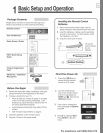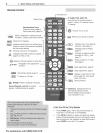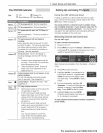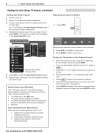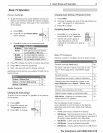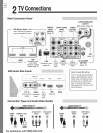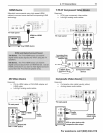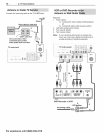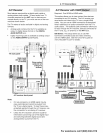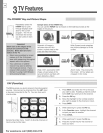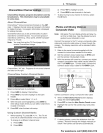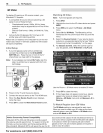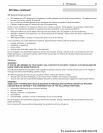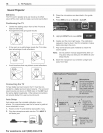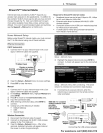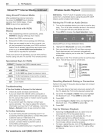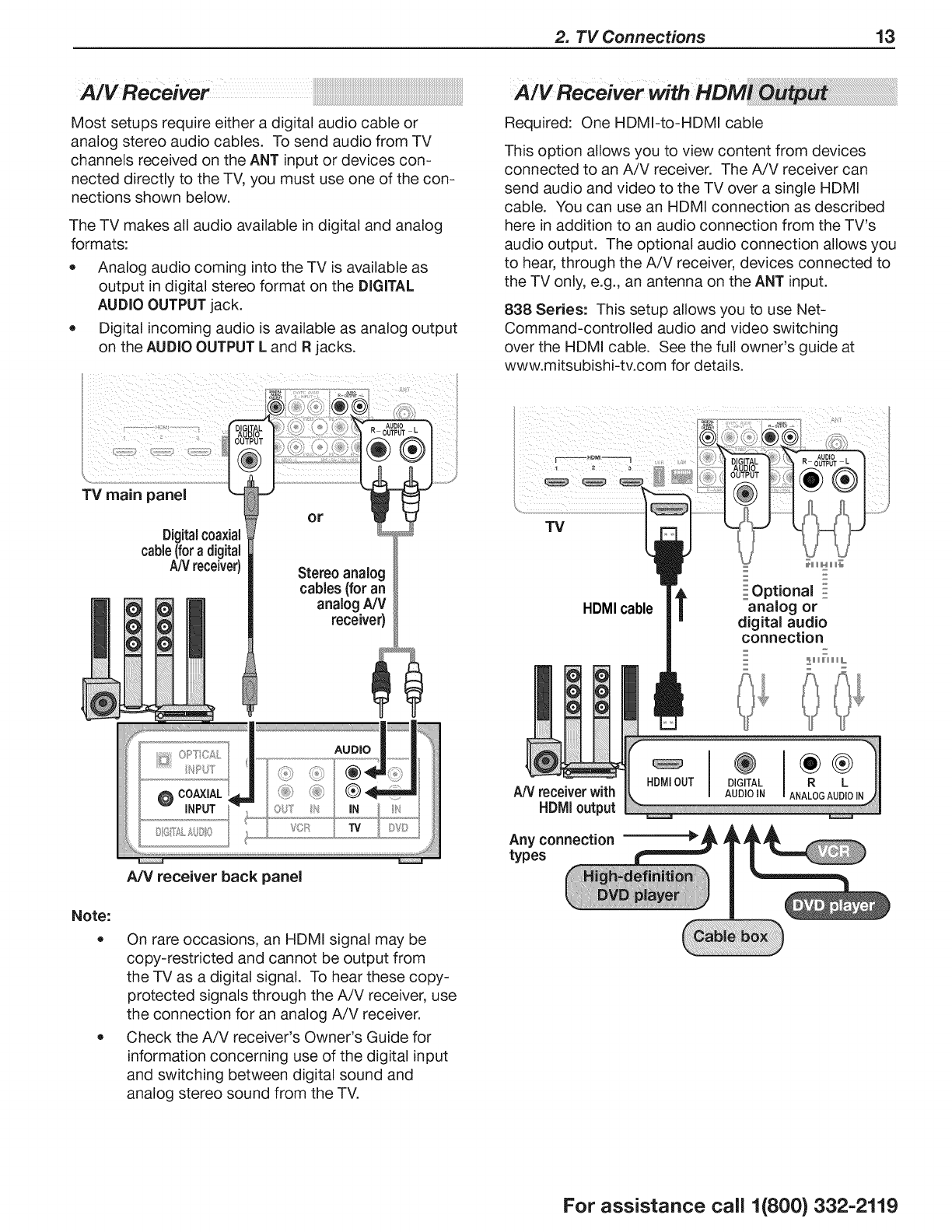
2. TV Connections 13
A/V Receiver
Most setups require either a digital audio cable or
analog stereo audio cables. To send audio from TV
channels received on the ANT input or devices con-
nected directly to the TV, you must use one of the con-
nections shown below.
The TV makes all audio available in digital and analog
formats:
• Analog audio coming into the TV is available as
output in digital stereo format on the DIGITAL
AUDIO OUTPUT jack.
• Digital incoming audio is available as analog output
on the AUDIO OUTPUT L and R jacks.
Required: One HDMI-to-HDMI cable
This option allows you to view content from devices
connected to an A/V receiver. The A/V receiver can
send audio and video to the TV over a single HDMI
cable. You can use an HDMI connection as described
here in addition to an audio connection from the TV's
audio output. The optional audio connection allows you
to hear, through the A/V receiver, devices connected to
the TV only, e.g., an antenna on the ANT input.
838 Series: This setup allows you to use Net-
Command-controlled audio and video switching
over the HDMI cable. See the full owner's guide at
www.mitsubishi-tv.com for details.
ii( : i¸ ::::
TV main panel
Digitalcoaxial
cable(foradigital
A,_/receiver)
AUDIO
R OUTPUT L
or
Stereo analog
cables (for an
analog NV
receiver)
Note:
®
A/V receiver back panel
On rare occasions, an HDMI signal may be
copy-restricted and cannot be output from
the TV as a digital signal. To hear these copy-
protected signals through the A/V receiver, use
the connection for an analog A/V receiver.
Check the A/V receiver's Owner's Guide for
information concerning use of the digital input
and switching between digital sound and
analog stereo sound from the TV.
TV
AUDIO
R OUTPUT L
HDMIcable
t
_HHH_
Optional :
analog or
digital audio
connection
z
_HHHL
A/V receiverwith
HDIVIIoutput
Any connection
types
HDMIOUT DIGITAL R L
AUDIO IN ANALOGAUDIOIN
For assistance call 1(800) 332-2119



